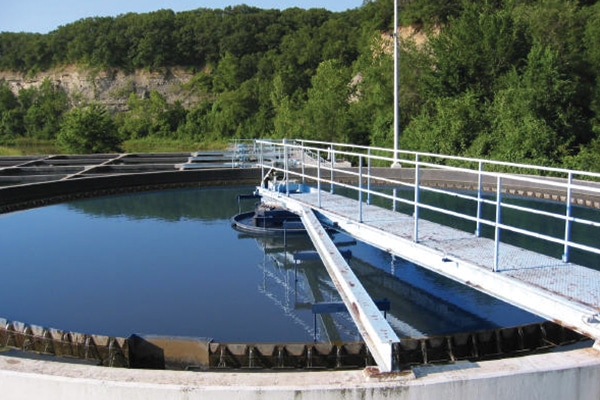In Australia, various industries including manufacturing and agriculture, face significant challenges concerning wastewater management. Wastewater often contains harmful substances such as chemicals and heavy metals, threatening the environment and public health. Effective treatment of this wastewater is crucial to meet environmental regulations and sustainably manage water resources for future generations.
Wastewater Challenges Faced by Key Industries
Manufacturing Sector: Industries like chemical and electronics manufacturing and food processing are major water users, relying on specialised equipment like wastewater filters to manage water waste efficiently for cooling and cleaning processes. For instance, chemical manufacturing uses water extensively throughout production, while electronics manufacturing requires water for cooling electronic components and cleaning machinery. Similarly, food processing relies on water for cleaning raw materials and processing food products.
Agriculture: Agricultural activities necessitate significant water use for irrigation and livestock, which can lead to runoff and wastewater containing pesticides and fertilisers. Managing agricultural wastewater is crucial to prevent contamination of water sources and ensure environmental sustainability.
Mining: Mining operations require substantial water for mineral processing and managing tailings, necessitating effective wastewater management to mitigate environmental risks such as water contamination and habitat destruction.
Power Generation: Power plants, whether thermal-based (nuclear, coal, natural gas) or renewable (hydropower), consume large quantities of water for cooling and steam generation. Managing thermal pollution and ensuring proper wastewater treatment are critical to minimising the environmental impact.
Food and Beverage Production: Water is extensively used in food and beverage production for washing, processing, and as an ingredient. Strict wastewater treatment is essential to meet environmental standards and prevent pollution of water bodies.
Sustainable Water Management Practices
Industries must adopt sustainable practices to mitigate their impact on water resources and comply with environmental regulations:
- Water Recycling: Implementing a wastewater recycling system reduces demand for freshwater sources and minimises wastewater discharge.
- Efficient Water Use: Optimising water use through efficient technologies and practices helps industries reduce overall water consumption.
- Advanced Wastewater Treatment: Implementing advanced technologies such as chemical treatments and filtration systems ensures that wastewater is treated to meet environmental standards before discharge.
Our Solutions
At Baldwin, we specialise in industrial wastewater treatment solutions tailored to meet the unique needs of various industries. We offer a huge range of industrial wastewater treatment services, including our RM-10 Chemical Treatment System, water clarifiers, PH Dosing Systems, (DAF) Dissolved Air Flotation Systems and Belt & Tube Oil Skimmers to name a few.
Managing industrial wastewater is not only a regulatory requirement but also a responsibility towards safeguarding Australia’s water resources for future generations. By adopting sustainable practices and using advanced wastewater treatment technologies, industries can minimise their environmental footprint while ensuring efficient use of water resources.
Contact us today to learn more about how we can support your business in effectively managing water waste challenges with reliable and sustainable solutions.

Frequently Asked Questions
What industries rely on wastewater treatment solutions?
Various industries, including manufacturing, agriculture, mining, power generation, and food and beverage production, require wastewater management to handle water waste and comply with environmental regulations.
What are the risks of improper wastewater management?
Without proper treatment, wastewater can contaminate water sources, harm ecosystems, and lead to regulatory penalties. It may also affect operational efficiency and increase long-term costs for businesses.
How does wastewater impact the environment?
Industrial wastewater can introduce pollutants such as chemicals, heavy metals, and organic waste into rivers, lakes, and groundwater, potentially harming wildlife and human health. Effective treatment helps reduce these risks.
What methods are used to treat industrial wastewater?
Different industries use a range of treatment methods, including filtration, chemical treatment, pH balancing, dissolved air flotation, and oil skimming systems. The choice of treatment depends on the specific contaminants present in the wastewater.
Can wastewater be reused after treatment?
Yes, many industries implement water recycling systems that allow treated wastewater to be reused for processes such as cooling, irrigation, or equipment cleaning, reducing overall water consumption.
What are the key factors in choosing a wastewater treatment system?
Factors to consider include the type of contaminants, industry regulations, water usage needs, system efficiency, and long-term maintenance requirements. The right solution depends on the specific challenges faced by the business.
